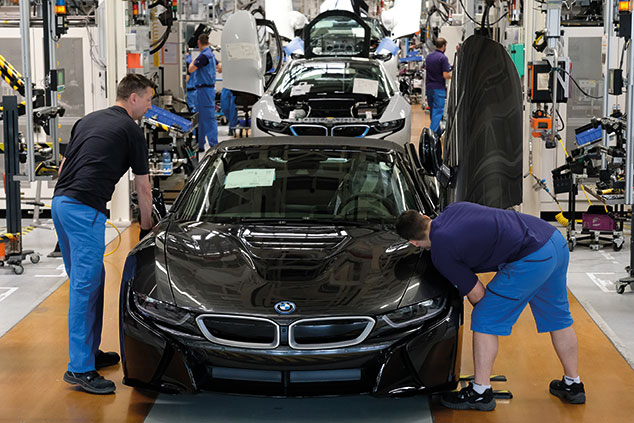
Predictions of a technical recession had been based on “dismal industrial production data”, but domestic demand came to the rescue, says Leonid Bershidsky on Bloomberg. Germans “bought 22% more cars in September” compared with the same month last year, while sales in the construction sector rose 6.5% year-on-year during the first eight months. Crucially, the unemployment rate of 3.1% remains at historic lows. That is keeping consumer spending ticking along.
The good news could prove a missed opportunity, says Ambrose Evans-Pritchard in The Daily Telegraph. “Gothic headlines” of recessionary doom would have increased the pressure on tight-fisted politicians in Berlin to ramp up fiscal stimulus.
Instead, policymakers have remained sanguine about the growth slowdown, Carsten Brzeski of ING tells the Financial Times. “After ten years of almost unstoppable economic growth, a shorter period of stagnation is not necessarily a big crisis.”
The world’s frail trio
“Germany is not out of the economic woods yet,” says Evans-Pritchard. More than almost any other major country, it is “highly geared to the ups and downs of the global trade cycle”. Daimler’s recent profit shock was a reminder that the world economy is not in good health.
Global growth is being dragged down by the “frail trio” of China, Japan and Germany, says Craig Stirling on Bloomberg. The only bright spot is strong US consumer data. Growth in China slowed again in October, while Japanese growth fell from 1.8% in the second quarter to just 0.2% in the third, sparking talk of a recession. Investors are hopeful that an upcoming US-China trade truce will prevent “a major rupture in the world trade system”, says The Wall Street Journal. Yet a tariff rollback alone doesn’t provide much reason for a sustained rebound.
Markets have other ideas. Germany’s Dax index is up about 25% for the year to date. That is partly thanks to new monetary stimulus from the European Central Bank, which inflates asset prices, but also suggests optimism about 2020.
But the bulls are getting ahead of themselves, says Nick Andrews for Gavekal Research. Germany’s manufacturing sector faces structural challenges and “it is too soon to be counting trade chickens… It’s not 2017 again in Europe”.